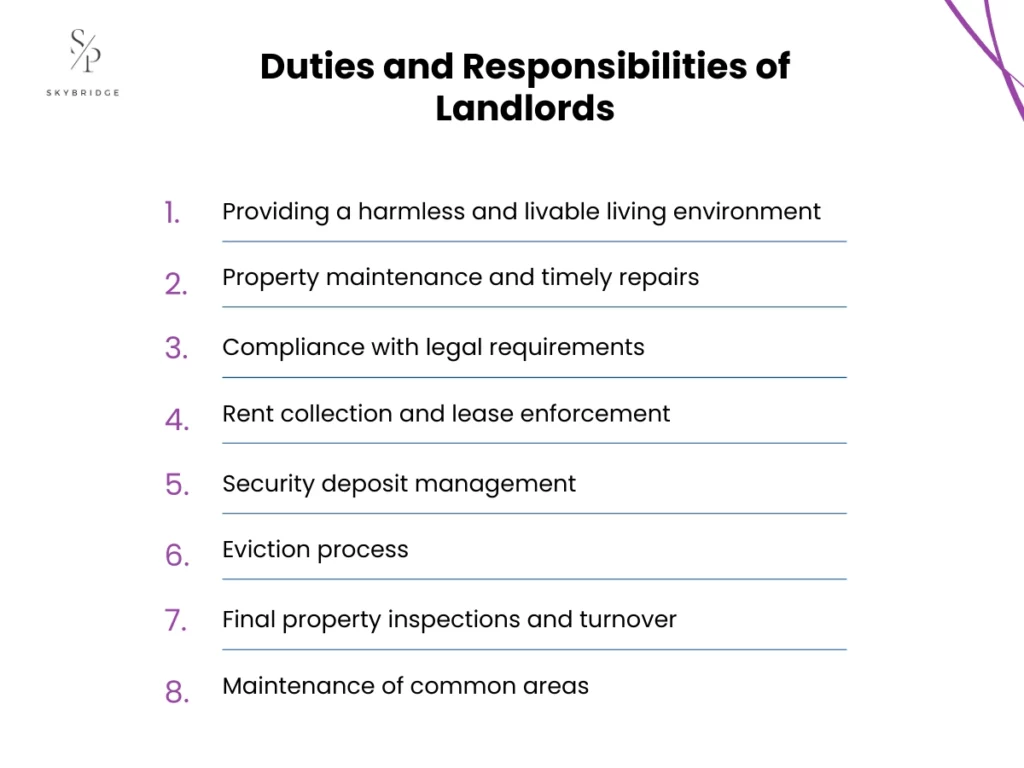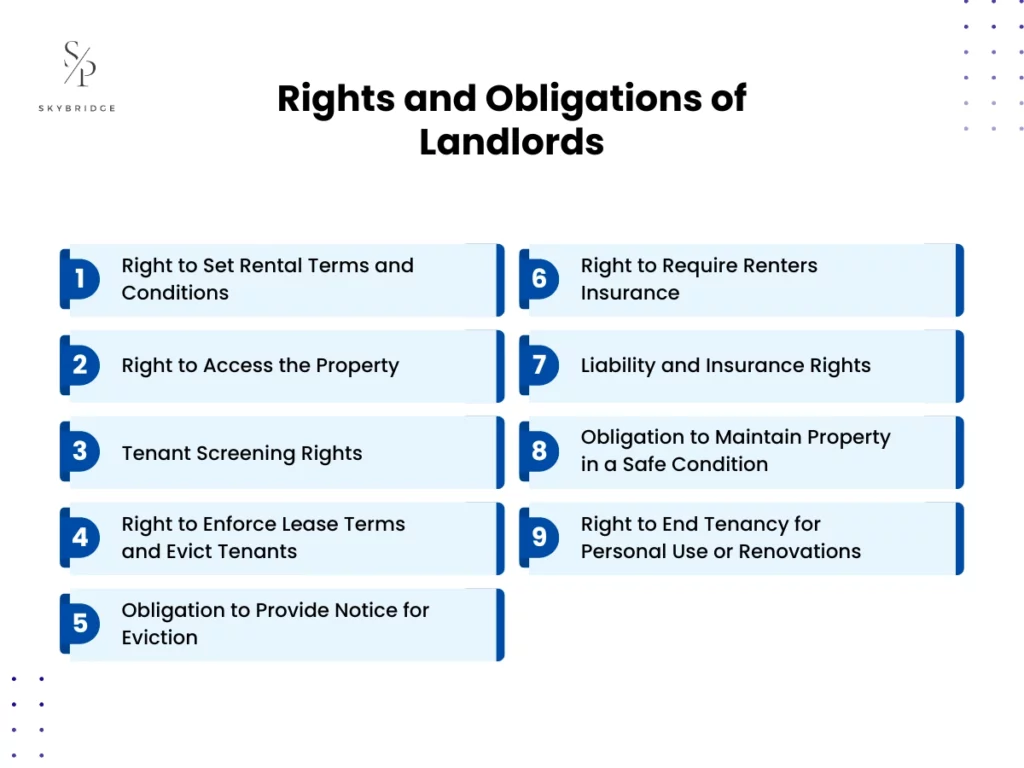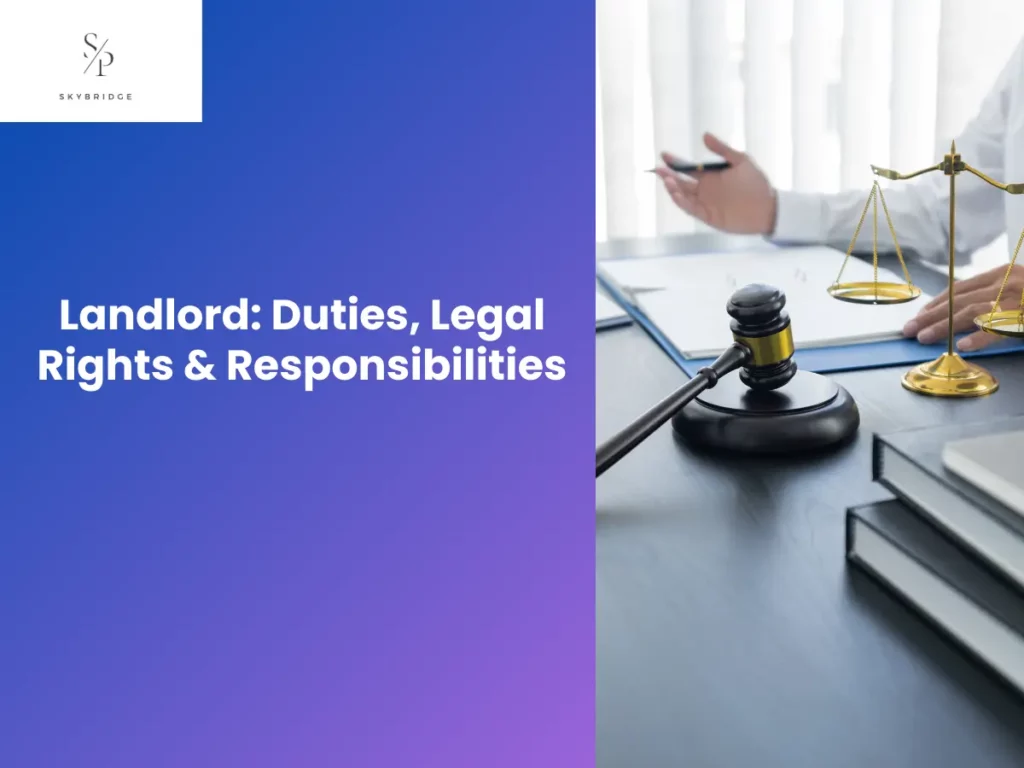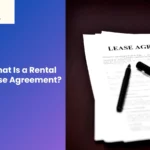Understanding rights and responsibilities is essential for landlords to ensure legal compliance, protect investments, and foster positive tenant relationships. California law governs critical aspects of landlord-tenant relationships, including rent control, tenant rights, and property maintenance. Staying informed about state and local housing laws, fair housing regulations, and habitability requirements is key to managing properties effectively and avoiding costly legal disputes.
California law requires landlords to maintain habitable living conditions, ensuring essential systems like plumbing, electrical, and heating are functioning properly. Non-compliance can lead to tenants withholding rent or pursuing legal action. Regularly reviewing these laws ensures landlords meet their obligations, safeguard their investments, and maintain tenant satisfaction. Staying updated on legal changes is an ongoing process, and landlords who consistently do so are better prepared to manage properties efficiently and legally.
Duties and Responsibilities of Landlords
Landlords must provide a safe, habitable living environment and comply with laws like the California Civil Code and Fair Housing Laws. This includes maintaining the property, addressing repairs promptly, and ensuring the property is free from health and safety hazards.

Some key duties and responsibilities of landlords include:
- Providing a harmless and livable living environment
- Property maintenance and timely repairs
- Compliance with legal requirements
- Rent collection and lease enforcement
- Security deposit management
- Eviction process
- Final property inspections and turnover
- Maintenance of common areas
Providing a Safe and Habitable Living Environment
In California, landlords are legally required to provide a safe and habitable living environment for tenants, as outlined in California Civil Code Section 1941. A “safe and fit for occupancy” property must be free from health and safety hazards and fit for tenants to live in.
Key requirements for a non-hazardous and suitable for residential environment include:
- The property must meet local health and safety standards, ensuring no environmental hazards like mold, lead paint, or unsanitary conditions.
- Property must be free from major structural issues, such as damaged foundations, leaking roofs, or unsafe staircases.
- Landlords must maintain working plumbing, heating, electricity, and water systems.
- The property must be free from pests, such as rodents, termites, or bedbugs, and landlords are responsible for addressing infestations.
Property Maintenance and Timely Repairs
Under Civil Code Section 1941.1, landlords must keep properties in good condition and address tenant repair requests within 30 days. Regular inspections prevent safety hazards, protect property value, and avoid legal disputes.
Landlords are specifically responsible for maintaining essential amenities in good working order, including:
- Heating and electrical systems
- Hot and cold potable water
- Plumbing fixtures
- Wiring
- Required ventilation and lighting
- Smoke alarms and carbon monoxide detectors
- Weather protection on exterior doors and window seals
- Common areas in multi-unit properties
- Prevention of dampness or mold
- Adequate garbage storage
- Exterior locks
Compliance with Legal Requirements
Complying with the California Civil Code is vital to avoid legal risks, penalties, and disputes. Key regulations include property maintenance, tenant rights, rent control laws, and proper eviction procedures. Ensuring adherence to these laws helps protect landlords’ investments, maintain tenant satisfaction, and avoid costly legal consequences.
Key legal regulations include:
- Rent Control Laws: Local ordinances govern rent charges, with increases capped under the Tenant Protection Act (AB 1482) for properties built before 2005.
- Eviction Procedures: Outlines the proper notice requirements and gives tenants time to address issues before eviction proceedings begin.
- Habitability Standards: Properties must meet health and safety standards, ensuring functional plumbing, electrical, and heating systems.
- Entry Notice: 24 hours’ notice is required before entering the unit, except in emergencies (Article 1954).
Rent Collection and Lease Enforcement
Timely rent collection is essential for a landlord’s financial stability and effective property management. Under the California Civil Code, landlords must clearly define rent amounts, due dates, and acceptable payment methods in the lease agreement. Reasonable late fees are allowed, but these cannot exceed 5% of the rent or $50, whichever is greater.
Key landlord responsibilities for rent collection and lease enforcement include:
- Rent amounts, due dates, and payment methods must be clearly outlined to avoid confusion.
- Landlords must enforce lease terms regarding overdue rent, including applying late fees.
- Any violations, such as unauthorized subletting or property damage, must be addressed by the landlord
- If rent remains unpaid, landlords can issue a “Pay Rent or Quit” notice to initiate eviction proceedings.
Security Deposit Management
Security deposits are essential for landlords to cover potential damages or unpaid rent. Under California Civil Code Section 1950.5, the maximum security deposit allowed for unfurnished properties is two months’ rent, and for furnished units, it is three months’ rent. However, starting July 1, 2024, this limit has dropped to one month’s rent for all new leases, with the first month’s rent remaining separate.
Key aspects of managing security deposits include:
- Landlords must collect the deposit before the tenant moves in, ensuring it does not exceed the legal limits.
- The deposit must be securely held in trust for the tenant and cannot be used for ordinary wear and tear.
- Landlords must return the deposit within 21 to 30 days after move-out, minus any itemized deductions for damages or cleaning.
- Any deductions must be clearly documented with supporting evidence, such as receipts or invoices, to justify the amounts taken from the deposit.
Eviction Process
When a tenant fails to meet their lease obligations, such as non-payment of rent or lease violations, landlords can initiate the eviction process.
The overall eviction process that landlord should follow include:
- Providing notice to the tenant: Landlords must issue a “Pay Rent or Quit” notice for unpaid rent, giving tenants 3 to 5 days to pay or vacate. For lease violations, a “Cure or Quit” notice is required, giving tenants time to fix the issue.
- Filing an eviction lawsuit: If the tenant fails to comply, landlords can file an unlawful detainer action in court, seeking an eviction order. The landlord must provide evidence of the tenant’s non-compliance.
- Court hearing and judgment: The court will review the case. If the landlord is successful, an eviction order will be granted, allowing the landlord to proceed.
- Enforcement of eviction: If the tenant refuses to vacate, the landlord can request law enforcement to execute the eviction order and remove the tenant from the property.
Final Property Inspections and Turnover
In California, proper inspections are required when a tenant moves out, as outlined in California Civil Code Section 1950.5. A pre-move-out inspection gives tenants the chance to address issues, and cleaning costs can be deducted from the security deposit.
To facilitate a smooth transition between tenants, landlords must fulfill the following critical responsibilities:
- During Move-Out Inspection: A check during the move-out process ensures tenants address repair or cleaning needs. This inspection helps landlords ensure the property is left in good condition.
- Post-Move-Out Inspection: After the tenant vacates, landlords must conduct a thorough inspection to assess damages or cleanliness issues, ensuring the property is ready for the next tenant.
- Itemizing Deductions: If deductions are made from the deposit, landlords must provide an itemized list, outlining specific amounts deducted supported by receipts or invoices.
- Return of Deposit: Landlords must return the deposit within 21 to 30 days after the tenant moves out, subtracting any legitimate, itemized deductions by the landlord
- Reasonable Deductions: Only reasonable costs for repairs, damages, or cleaning can be deducted. Excessive or unjustified deductions can lead to legal disputes, and tenants may challenge unreasonable deductions.
Maintenance of Common Areas
Under Civil Code Section 1941.1, California landlords are responsible for ensuring that common areas are safe, clean, and well-maintained. Key areas that require attention include:
- Hallways, stairwells, and elevators
- Parking lots, driveways, and sidewalks
- Laundry rooms, outdoor spaces, and recreational areas
- Common entryways, lobbies, and mail areas
- Trash disposal areas and landscaping
- Staircases and ramps
- Building exterior
- Corridors and vestibules
- Emergency exits and fire escapes
- Lighting in common areas
- Security systems
Rights and Obligations of Landlords
Maintaining essential systems and adhering to legal standards is crucial for property management. This includes ensuring proper functioning of plumbing, electrical, and safety systems, following eviction procedures, and providing a 24-hour notice before entry, except in emergencies.

Right to Set Rental Terms and Conditions
Californian landlords have the legal authority to define the terms of a lease, including rent, lease length, and property rules. These terms must comply with applicable laws and be clearly outlined in the rental agreement to protect both parties and prevent disputes.
Key terms landlords may set are:
- Set the rent amount based on market rates and property condition.
- Choose between short-term or long-term leases, including the start and end dates of the tenancy.
- Impose reasonable rules related to property use, including pet policies, smoking bans, noise levels, and tenant responsibilities for upkeep.
- Include reasonable late fees as allowed by local and state regulations.
Right to Access the Property
Landlords in California have the right to access rental properties for necessary repairs, inspections, or showings, as outlined in Civil Code Section 1954. This ensures that landlords can maintain and protect their property, making sure it remains secure and tenant-friendly. However, there are specific guidelines for when and how this access can occur as non-emergency entry:
- Landlords must provide 24 hours’ written notice before entering for non-emergency reasons.
- The notice should include the date, time, and purpose of the visit.
In emergencies, such as fire, flooding, or other urgent circumstances that pose immediate risks, landlords are allowed to enter the property without prior notice. This exception enables landlords to address issues quickly to prevent harm or further damage.
Tenant Screening Rights
When selecting tenants, landlords must ensure fairness and avoid discrimination. Written consent is required before conducting credit or background checks, ensuring transparency. Landlords must also adhere to non-discriminatory practices, offering equal opportunities regardless of race, religion, sex, or disability, ensuring compliance with regulations.
Key guidelines that landlords should follow while screening tenants include:
- Adverse Action Notice: If a tenant is denied, landlords must provide a notice explaining the reason, such as poor credit, allowing tenants to address inaccuracies.
- Credit Report Disclosure: Tenants must be informed of their right to request a copy of the report used in the decision.
- Opportunity for Dispute: Landlords must give tenants the chance to resolve discrepancies before further action is taken.
By following Civil Code Section 1785.10, FEHA, and the Fair Credit Reporting Act (FCRA), landlords protect themselves from legal challenges while maintaining a fair, lawful tenant selection process. Proper screening practices help secure reliable tenants, contributing to the stability and success of their rental business.
Right to Enforce Lease Terms and Evict Tenants
The Californian landlords can enforce lease terms, including non-payment of rent or property damage, under Civil Code Section 1946.2. They can issue a “Pay Rent or Quit” notice for unpaid rent or a “Cure or Quit” notice for other violations, giving tenants 3 to 5 days to resolve the issue before eviction proceedings start.
Key points landlords should consider regarding tenant eviction are:
- Issuing Notices: Landlords provide the appropriate notice based on the violation.
- Filing Eviction: If non-compliance continues, landlords can file an unlawful detainer action for eviction.
- Following Legal Timelines: Landlords must comply with California Code of Civil Procedure Section 1161 to avoid wrongful eviction claims.
Obligation to Provide Notice for Eviction
Landlords must provide a written notice to tenants before beginning the eviction process, as outlined in Civil Code Section 1946.2. The type of notice depends on the violation:
- For unpaid rent, provide 3–5 days to pay or vacate.
- For lease violations, allow tenants the required time to fix the issue.
- For serious violations, landlords can issue immediate eviction that range from 3 to 30 days, depending on the violation.
Right to Require Renters Insurance
While not mandated by law, landlords in California have the right to require tenants to carry renters insurance as a condition of the lease. This added layer of protection benefits both the tenant and landlord in the event of property damage, accidents, or loss of personal belongings.
Here is why landlords require renters’ insurance:
- Protection for Personal Property: Covers tenant belongings in case of fire, theft, or other damage.
- Liability Coverage: Helps cover tenant-caused damage or injuries in the rental unit.
- Lease Requirement: Landlords can include renters’ insurance as a lease condition with required coverage limits.
- Peace of Mind for Landlord: Reduces risk of disputes and out-of-pocket costs for damages or accidents.
Liability and Insurance Rights
To protect both property and people, landlords should maintain comprehensive insurance coverage, including property insurance, liability insurance, and tenant liability insurance. These policies help mitigate financial loss from incidents such as fire, natural disasters, or tenant-caused damage, while also covering potential medical expenses and legal claims.
Below are the three insurance types that landlords should maintain:
- Property Insurance: Covers damage from fire, vandalism, or disasters.
- Liability Insurance: Protects against medical costs and legal claims from accidents.
- Tenant Liability Insurance: Ensures tenants are responsible for damages in their unit.
Obligation to Maintain Property in a Safe Condition
Under Civil Code Section 1941.1 and Health & Safety Code Section 17920, landlords must keep rental properties safe and habitable by maintaining major systems and addressing health or safety hazards, or risk legal consequences and property damage.
Landlords should consider this maintenance checklist to ensure the safety of the rental property:
- Plumbing: Ensure proper working of pipes, drains, and fixtures to prevent leaks, water damage, and tenant complaints.
- Heating & Cooling: Keep HVAC systems operating efficiently.
- Electrical Systems: Regularly inspect wiring and outlets to avoid power failures and fire risks.
- Structural Integrity: Check walls, ceilings, and floors for damage to reduce injury risk and repair costs.
- Health & Safety Hazards: Address mold, pests, and other hazards to protect tenant health and avoid violations.
- Safety Devices: Ensure functionality of smoke detectors and fire extinguishers to ensure emergency readiness.
- Exterior Maintenance: Maintain safe walkways and communal spaces to prevent accidents and improve appeal.
Right to End Tenancy for Personal Use or Renovations
Landlords may terminate a tenancy when the unit is needed for personal use or major renovations, as permitted under Civil Code Section 1946.2. But, they must meet notice and relocation requirements to remain compliant with the law. Below are the key requirements to follow:
- Valid Reasons: Termination allowed for landlord/family use or substantial renovations.
- Notice Period:
- 30 days for tenants in the unit for less than one year.
- 60 days for tenants in the unit for one year or more.
- Relocation Assistance: Required when ending tenancy for personal use or renovations, per Health & Safety Code Section 17975.
- Legal Risk: Non-compliance may lead to fines or wrongful eviction claims.
Simplify Property Management with Professional Support
California landlords are legally required to uphold a wide range of responsibilities, ensuring habitable living conditions, adhering to notice periods, handling security deposits correctly, and complying with evolving state and local housing laws. Failing to meet these obligations can result in costly penalties, tenant disputes, or legal action.
To navigate these complex requirements efficiently, many landlords turn to a property management company in California. Professional management companies provide end-to-end support, from legal compliance and tenant screening to maintenance, rent collection, and conflict resolution, ensuring every aspect of property oversight is handled correctly. With expert guidance, landlords can reduce risk, save time, and enjoy a smoother, stress-free rental experience while focusing on growing their real estate portfolio.







